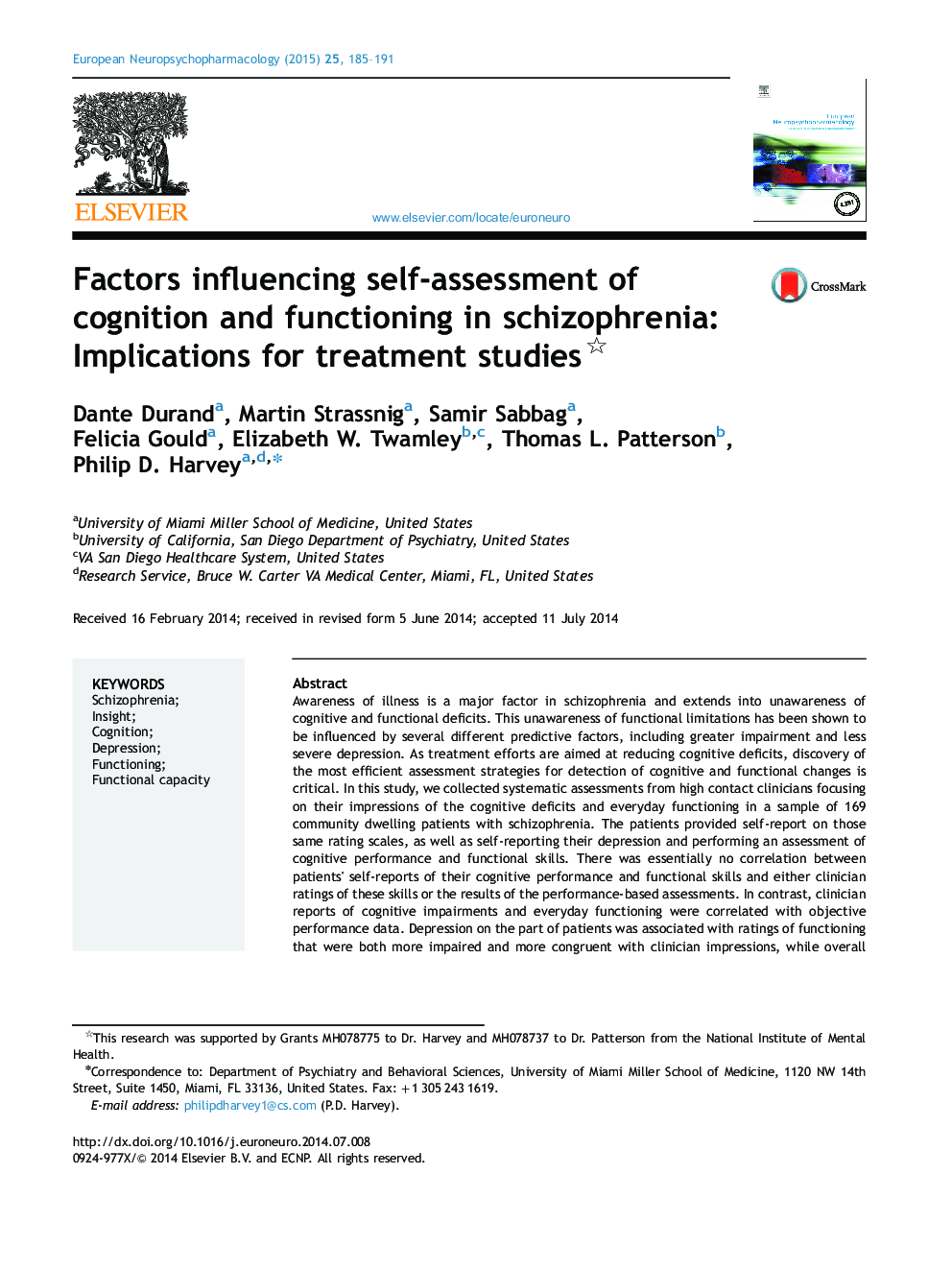| Article ID | Journal | Published Year | Pages | File Type |
|---|---|---|---|---|
| 320136 | European Neuropsychopharmacology | 2015 | 7 Pages |
Awareness of illness is a major factor in schizophrenia and extends into unawareness of cognitive and functional deficits. This unawareness of functional limitations has been shown to be influenced by several different predictive factors, including greater impairment and less severe depression. As treatment efforts are aimed at reducing cognitive deficits, discovery of the most efficient assessment strategies for detection of cognitive and functional changes is critical. In this study, we collected systematic assessments from high contact clinicians focusing on their impressions of the cognitive deficits and everyday functioning in a sample of 169 community dwelling patients with schizophrenia. The patients provided self-report on those same rating scales, as well as self-reporting their depression and performing an assessment of cognitive performance and functional skills. There was essentially no correlation between patients׳ self-reports of their cognitive performance and functional skills and either clinician ratings of these skills or the results of the performance-based assessments. In contrast, clinician reports of cognitive impairments and everyday functioning were correlated with objective performance data. Depression on the part of patients was associated with ratings of functioning that were both more impaired and more congruent with clinician impressions, while overall patients reported less impairment than clinicians. These results underscore the limitations of self-reported cognitive functioning even with structured rating scales. Concurrently, clinicians provided ratings of cognitive performance that were related to scores on objective tests, even though they were unaware of the results of those assessments.
